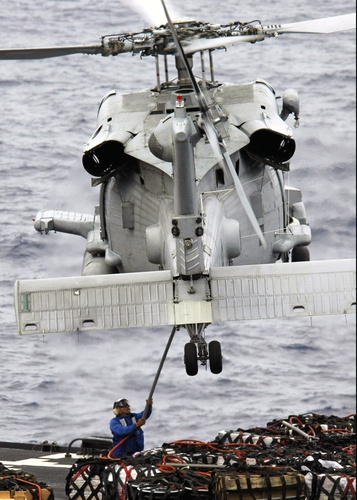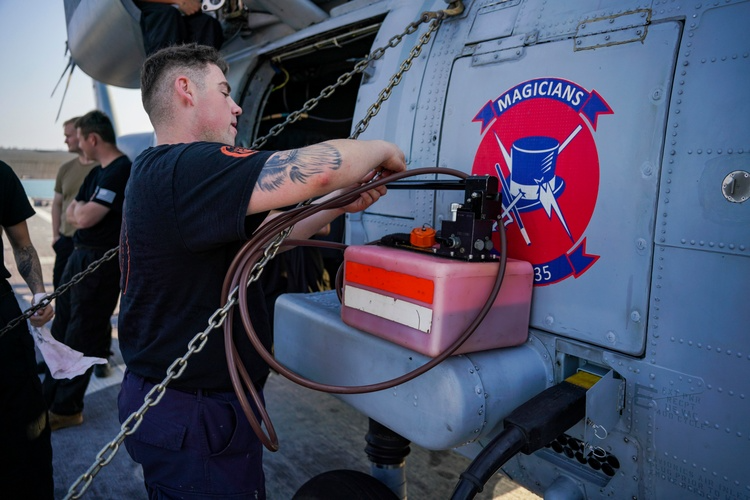Inside the Specs: Understanding SAE Grades, Additives, and Compliance in AeroShell Oils
Picking an aircraft engine oil is not a matter of preference; it is about compliance, safety, and performance. AeroShell oils are among the most trusted aviation oils in the world, with weights and blends used in piston engines (such as Lycoming, Continental, and Rotax) and turbine engines, as well as some accessory drives.
Behind the familiar labels (W100, W15W50, and 560, to name a few) are sets of specifications, standards, and additives that determine what they are used for (break-ins, standard operations, and so on) and what conditions a particular weight is ideally suited for.
We are breaking down SAE grades, additive technology, and compliance into an easy-to-read reference guide.
.png)
Why Specs and Standards Matter in Aviation Oils
Whether it’s a piston engine in a light single or a turbine flying at 50,000 feet, aircraft engines run harder than any other engines on earth. Rapid changes in pressure, high and low temperatures, and long-duration flights put extreme stress on engine components and the lubrication system. The proper lubricant in an aviation piston or turbine engine makes all the difference in the world.
A well-maintained engine with clean oil that meets the correct specifications and is intended for use with the specific engine will provide the most reliable engine possible.
Aviation engine oils must meet FAA, SAE, and OEM requirements for use in engines, ranging from a Lycoming engine in a Cessna 182 to a General Electric engine in a wide-body Boeing—the correct oil choice results in reduced wear, improved lubrication, and long-term environmental protection.
SAE Grades Explained in AeroShell Oils
Alright, what do SAE grades even mean? This is one of the most misunderstood aspects of lubricants, and it is arguably one of the most important. When every engine is designed and engineered, it is built to a specific set of tolerances based on the metal types used, expected use, performance, and other factors. A Lycoming O-320 used in a Cessna 172 has a drastically different performance profile compared to a Lycoming Thunderbolt engine, which is specifically designed for aerobatics.
What SAE Grades Mean in Aviation
SAE stands for Society of Automotive Engineers, the predominant professional organization that develops standards for automotive engineers and the automotive industry. The SAE grades are derived from automotive industry standards, as they still work well in this context.
SAE grades describe the viscosity of engine oil, indicating how thick or thin the oil is. The thickness refers to the viscosity of the oil when the engine is in operation, determining how well it flows when it is either cold or hot (since it is always thinner at operating temperature) and how well it resists breakdown.
AeroShell Piston Engine Oil Lineup
Federal buyers can source premium AeroShell piston engine oils directly through GSA Advantage for reliable aviation lubrication and streamlined procurement:
- AeroShell W80: (Quart, Case of 6, SAE 40 equivalent) – Single grade ashless dispersant oil for general aviation piston engines, suitable for colder climates (-17°C to 21°C ambient air temperature)
- AeroShell W100: (Quart, Case of 6, SAE 50 equivalent) – Higher viscosity dispersant oil designed for moderate to hot climates (16°C to 32°C) and heavy load operations
- AeroShell W100 Plus: (Quart, Case of 6) – Enhanced W100 formulation with extra anti-wear and anti-corrosion additives for added engine protection in demanding conditions
- AeroShell 100 Straight Mineral: (Quart, Case of 6, SAE 50 mineral) – Non-dispersant oil formulated explicitly for engine break-in and post-overhaul operations, allowing piston rings and cylinders to seat correctly
- AeroShell W15W50: (Quart, Case of 6) – Multi-grade semi-synthetic oil engineered for cold starts and high temperature stability, with anti-wear and corrosion inhibitors for long-term engine protection
- AeroShell 5W30 Diesel Ultra: (Quart, Case of 12) – Fully synthetic oil designed exclusively for Jet A and Jet A-1 fueled aviation diesel piston engines, providing advanced protection and efficiency in modern compression ignition platforms
Order these aviation-grade engine oils through your GSA Schedule for compliant federal purchasing and delivery to your maintenance operations.
Oil Formulations and Additives
Alright, so what are additives, and how are they used?

Straight Mineral Oils
Straight mineral oils, like AeroShell 100, are recommended for new or freshly overhauled engines. It has no dispersant additives, or “detergents”, which allow for a controlled wear during break-in periods.
This is important because engine components need to seat properly for long-term performance, and the right oil helps them do so.
Ashless Dispersant Oils
Ashless dispersant oils like W80 and W100 are for long-term operational use. These oils suspend contaminants so carbon and sludge don’t form inside the engine. Cleaner internals mean less maintenance downtime and longer engine life.
Advanced Additive Packages
Some AeroShell oils go one step further with targeted additive technology. W100 Plus and W15W50 have anti-wear and anti-corrosion packages that are especially useful in humid or corrosive environments.
The semi-synthetic blend in W15W50 improves cold-start lubrication while maintaining stability at high temperatures. For aviation diesel engines, 5W30 Diesel Ultra offers the benefits of a complete synthetic formulation optimized for Jet A- and Jet A-1-fueled platforms.
Turbine Oil Standards
While piston oils focus on SAE J-1966 and J1899 compliance, turbine oils are governed by different frameworks. Military and international specifications such as MIL-PRF-23699 and DEF STAN-91-100 define the performance characteristics required for turbine, turboprop, and supersonic jet engines.
The AeroShell Turbine Oil Lineup
AeroShell 500: A 5 cSt synthetic ester oil designed for turboprop and turbojet engines. Provides stable performance under demanding flight conditions.
AeroShell 560: A third-generation MIL-PRF-23699-approved turbine oil with reduced coking tendencies, making it ideal for modern jet engines with high operating temperatures.
AeroShell 555: Developed to meet DEF STAN-91-100 requirements, this oil provides extreme high-temperature stability for supersonic and military aircraft applications.
Compliance and Certification Framework
To operate safely and efficiently, every AeroShell oil is manufactured to meet strict compliance standards:
- SAE J-1966: General performance of piston engine oils.
- SAE J1899: Ashless dispersant piston oils.
- MIL-PRF-23699: U.S. Department of Defense turbine oils.
- DEF STAN-91-100: British Ministry of Defence supersonic turbine oils.
- OEM Service Instructions and Bulletins: Lycoming and Continental Aerospace Technologies Service Instructions and Critical Service Bulletins specify approved oils.
Final Takeaways
Getting to know the oils in your aircraft is one of the most important steps in overall engine management and health. The SAE is the organization that provides all standards for engine oil in the auto industry, which was carried over to piston engine oils as well.
Greenwood Aerospace is your trusted government procurement partner for sourcing AeroShell oils, greases, and other lubricants for your federal or military aviation mission, and we conveniently provide these items on GSA Advantage. All prices are precisely what is listed: no haggling, no hidden fees, no additional shipping. The price you see is the price you pay.
ITAR work made straightforward: Greenwood Aerospace is ITAR-registered and AS9120B-certified, with the compliance posture and IDs federal buyers expect (UEI KVSUYYSJS174 · DUNS 604006874 · CAGE 2Y735 · ITAR DDTC Export Compliant). NAICS covered: 488190, 336413, 332722, 336411, 336413, 481212, 532411. Need a quote, rush ship, or availability check? gsasales@greenwood.aero | 580-865-6000 | 833-GSA-EBUY (833-472-3289).


.svg)
.webp)

.webp)


